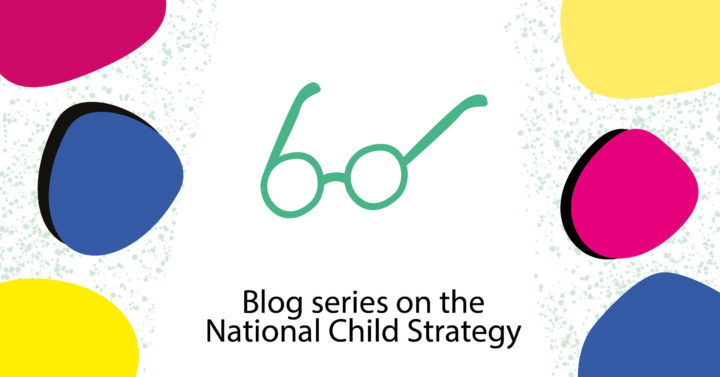Children and young people who need special support are also experts by experience
Blogs
Children and young people with special support experience more violence than other children of their age. Protecting children and young people from violence requires knowledge of their experiences of violence, but information about the experiences of violence of children and young people who need special support is still lacking.
Children and young people who need special support are not heard in studies about violence
Children and young people who require special support are not able to share their experiences of violence like other people of their age as they are often excluded from surveys carried out in Finland. For example, the most important source of information on violence experienced by children and young people, the Child Victim Survey, only reaches those children and young people in need of special support who are able to study in an ordinary school despite their disability, illness or special needs.
In spring 2022, we launched a pilot project in connection with the Child Victim Survey to test and assess the challenges and opportunities presented when researching experiences of violence among children and young people who need particularly specialised support due to physical or mental disabilities using a survey. The pilot project was planned in collaboration with Valteri Schools, which are intended for pupils in need of special support.
Since there is very little quantitative research data on the experiences of victims who are children and young people in need of special support, the pilot was designed to test how the online questionnaire of the Child Victim Survey would work in studying the experiences of violence of pupils in need of special support.
Studying the experiences of violence among children and young people with special needs is ethically challenging
When we ask children to share their experiences, we must believe in their ability to express their opinions on matters that concern them. This view was also the starting point for the pilot project. In order for children and young people to be able to decide for themselves whether to take part in a survey, researchers need to be sure that they understand what they have consented to.
However, obtaining consent from children and young people in need of special support comes with a number of ethical challenges and issues. As children and young people in need of special support have not been studied using a survey before, students who were able to make a decision on their participation were selected for the project. This meant that the survey would have been given to children and young people with severe visual, hearing or mobility impairments but no intellectual disabilities. In the case of children with intellectual disabilities, it is extremely difficult to verify that they have given their consent autonomously, and this point requires careful consideration of research ethics. However, solving all ethical challenges in the first study aimed at testing the methodology is not practical.
It was also important that the children and young people participating in the survey would be able to answer the questionnaire independently. Using assistants in research involves a number of ethical issues. Assistants must not have any influence on how children’s responses, for example.
Ethical challenges can be solved
Ethical issues were discussed with the Valteri School research group. The greatest challenge in terms of implementation was the disabilities and illnesses that have an extensive effect on students. There are very few Valteri School students who only have one individual disability, illness or special need. The Valteri schools’ student welfare services also found it too difficult and too big a responsibility to select the pupils who would certainly be able to make a decision concerning their participation. Moreover, the pilot project would have been the first study not to ask permission from the participants’ guardians. As there was no nominated research group or allocated funding for the pilot, the ethical challenges could not be solved in a satisfactory manner.
The project did, however, highlight a number of aspects that could be used and assessed in the future. Firstly, the pilot showed that collecting experiences of violence using a questionnaire would also be possible among children in need of special support, but the implementation still requires ethical reflection and close cooperation with participating schools and researchers familiar with the topic. It would be particularly important to obtain specific funding for the implementation in the future as, if successful, the study would provide important information on the experiences of violence among children and young people who need special support. It would also show how to carry out a survey to explore experiences of violence among children and young people with intellectual disabilities.
More information:
- Experiences of violence among children and young people in 2022 Prevalence, characteristics and related changes in 1988–2022 (in Finnish, valtioneuvosto.fi)
- Lapsia koskeva tieto: Tietopohjan tila ja kehittämistarpeet (in Finnish, doria.fi)
- The follow-up report on the implementation of the National Child Strategy by Prime Minister Sanna Marin’s Government 2019–2023 (in Finnish, valtioneuvosto.fi)
- The Non-Violent Childhoods Action Plan; mid-term review 2020 – early 2023 (in Finnish, valtioneuvosto.fi)
